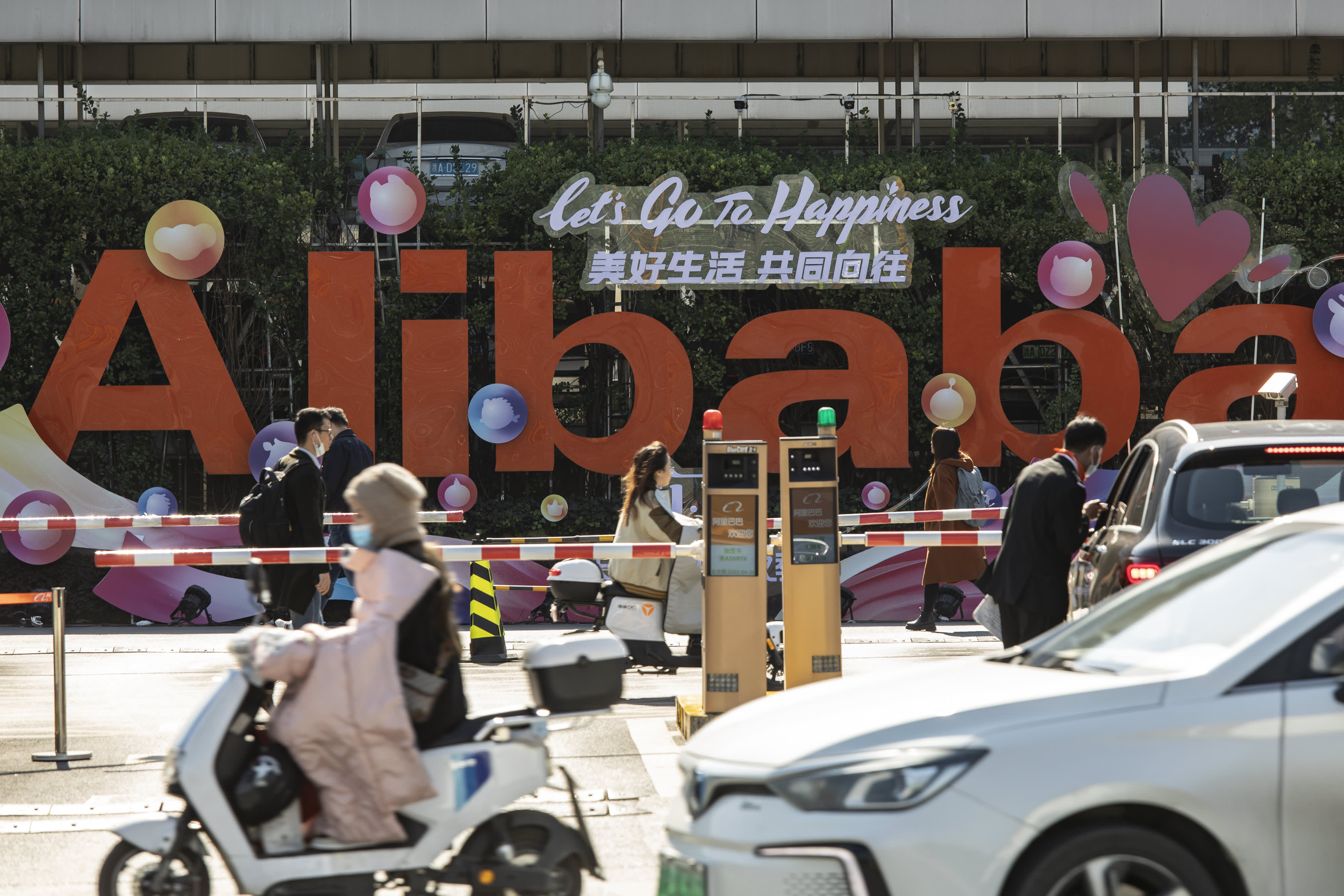
GUANGZHOU, China — Chinese e-commerce giants Alibaba and JD.com set new sales records across their platforms on Singles Day, the largest shopping event in the world.
Shares of JD were up about 4.6% in afternoon trade in Hong Kong on Friday while Alibaba was down about 1.8%.
The record sales come despite worries about the strength of the Chinese consumer and the impact of Beijing’s crackdown on technology companies.
While Singles Day, also called Double 11, used to just be a 24-hour flash sale type of affair, it has transformed into a multi-day extravaganza, ending at midnight on Nov. 11. JD began sales in late October while Alibaba started at the beginning of November. This extended period has helped the companies continue to grow sales.
Signage for Alibaba Group Holding Ltd. displayed at the company’s headquarters in Hangzhou, China, on Wednesday, Nov. 10, 2021. Alibaba’s annual 11.11 Singles’ Day online shopping bonanza, one that draws in hundreds of millions of people across the globe, is a more low-key affair this year as the e-commerce giant seeks to turn the focus away from increasing sales and more toward sustainability and philanthropy — key pillars of President Xi Jinping’s drive to reshape China’s economy.
Qilai Shen | Bloomberg | Getty Images
Alibaba said gross merchandise volume (GMV) during the 11-day period totaled 540.3 billion yuan ($84.54 billion), a more than 8% jump from last year’s 498.2 billion yuan.
JD said transaction volume on its platform totaled 349.1 billion yuan ($54.6 billion) during the Singles Day period, a 28% increase from the 271.5 billion yuan recorded last year.
GMV and transaction volume do not translate into direct revenue for JD and Alibaba. They also do not account for returned items. The figures relate to the volume of transactions across both their platforms.
They do, however, indicate Chinese consumers’ appetite to shop on the e-commerce giants’ platforms.
‘Social responsibility’
Both JD and Alibaba touted social and environmental responsibility during the event, aligning themselves with the priorities of Beijing.
“This 11.11 Global Shopping Festival, we delivered steady and quality growth that is a reflection of the dynamic Chinese consumption economy,” Yang Guang, vice president at Alibaba, said in a press release.
“We also leveraged the power of 11.11 as a platform to fulfill our social responsibility. This year’s festival was a meaningful milestone as part of our commitment towards building a sustainable future.”
JD meanwhile said it reduced carbon emissions by 26,000 tons during this Singles Day period compared with last year, highlighting its environmental credentials.
What did people buy?
JD said it saw a surge in purchases of luxury products and pet-related goods.
Apple appeared to see strong sales. JD said transaction volume of iPhones surpassed 100 million yuan in 2 seconds after the final sales began on Nov. 10.
Both Alibaba and JD said they saw growth in smaller Chinese cities, a key focus for the e-commerce firms as they look to grow their user bases.
Users from so-called lower-tier markets accounted for 77% of all shoppers during the Singles Day period, JD said. The company said it had seen “rapid growth of consumption” from these markets in home appliances, medicine and home decoration.
When Double 11 sales opened on Nov. 1-3, spending in lower-tier cities and rural areas increased by nearly 25% from last year, Alibaba said.
Source: CNBC
